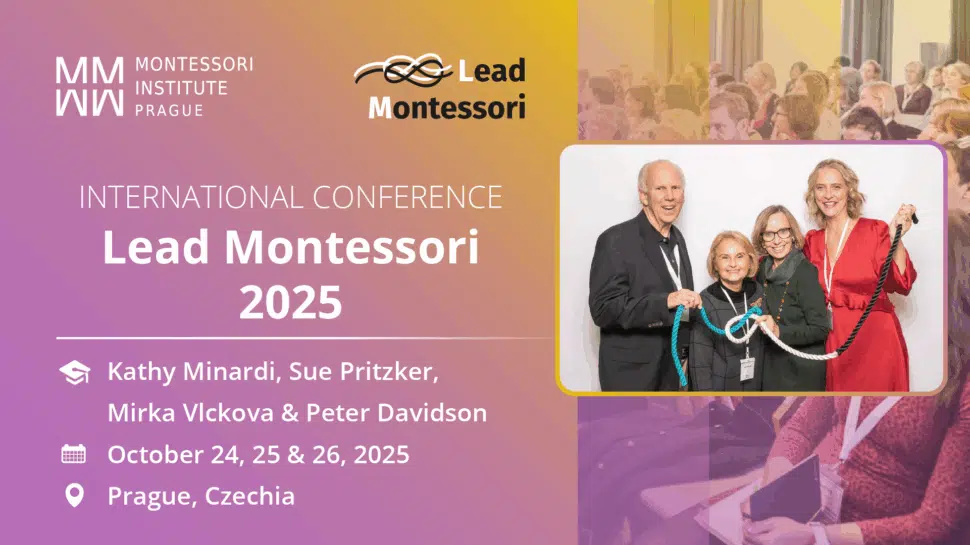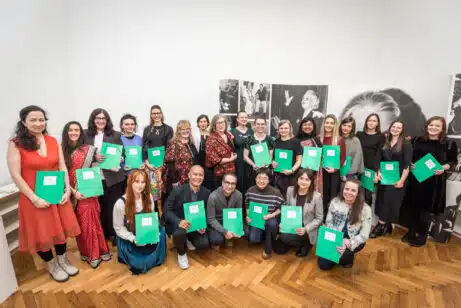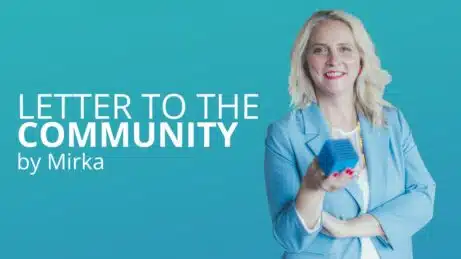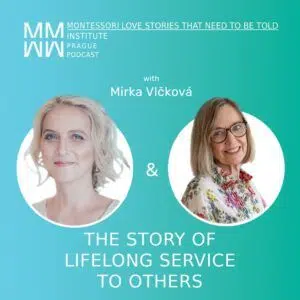Building Montessori in Kazakhstan with Dinara Zhaksylyk
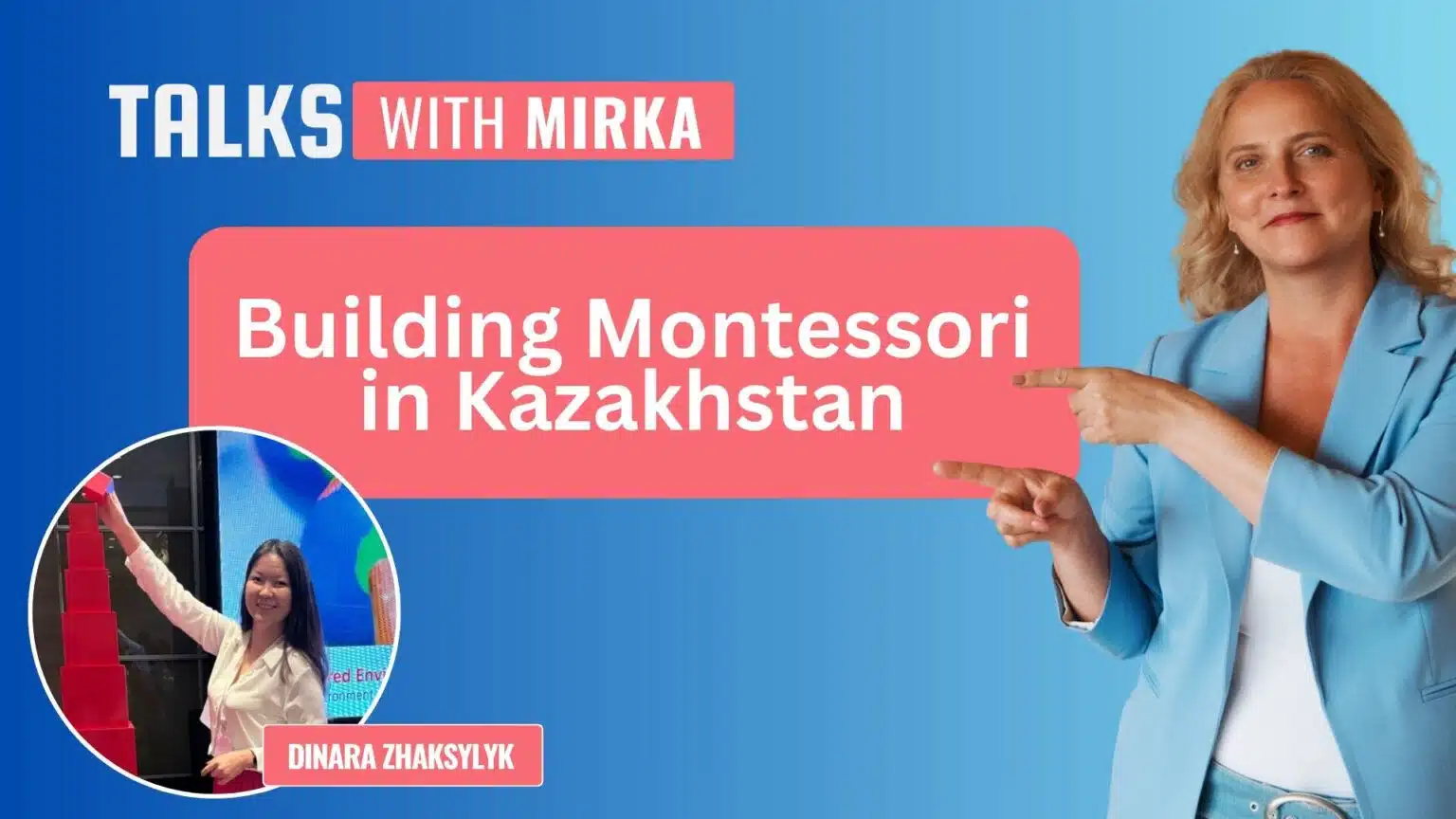
When you speak with Dinara Zhaksylyk, you immediately feel the quiet strength of someone who has built something extraordinary—not by accident, but with determination, clarity, and heart.
In this episode of the Lead Montessori podcast (in preparation of the upcoming conference), recorded in the middle of back-to-school preparations and some post-dental-brace awkwardness on my end, I had the pleasure of speaking with Dinara about her incredible journey of bringing Montessori education to Kazakhstan.
A First Encounter that Changed Everything
Dinara’s Montessori story began a decade ago, just after International Women’s Day. At the time, she was 25, working in international policy and development—and feeling the frustration of trying to make change from the top down.
Everything shifted the moment she walked into a Montessori classroom.
“It was something new for me,” she remembers. “The children were so different. The space was calm. I saw the vision of the founders—building a whole building just for a Montessori school. That was unheard of.”
Soon after, Dinara enrolled in an AMI 3–6 Diploma Course with trainer Madlena Ulrich, which she now describes as a major turning point: “My life is divided into before the diploma course and after.”
From Classroom to Country
Dinara began as an assistant and later became a guide. But it didn’t stop there. As she continued her work, she realized that a single trained teacher in a classroom, no matter how dedicated, wasn’t enough to bring Montessori to an entire country.
That’s when her bigger vision began to take root.
“We needed something local,” she explains. “Not everyone could travel abroad. I saw the difference between AMI-trained environments and those without it. We needed more trained people here.”
Fast forward to today, and Dinara is the founder and director of the Kazakhstan Montessori Institute—a newly affiliated AMI training center. Just hours before our recording, she received the email confirming that their Institute had officially been listed in the AMI CAS. Her joy was unmistakable: “I couldn’t believe it. This is a historical step for education in our country.”
Leadership as a Way of Being
Dinara’s journey is not just about founding an institution. It’s about a style of leadership that’s deeply Montessori in nature.
“To be a Montessori leader is not about having a title,” she says. “It’s about holding the vision, supporting the team, guiding without micromanaging, and making space for everyone to grow.”
Inspired by the leadership of her colleague Igulda Rimbyt, the founder of Damina Montessori in Almaty, Dinara speaks of leadership as trust in action: “She believed in me, and I want to pass that on. Everyone on our team has a voice—from the gardener to the guide. Everyone matters.”
Communication and Reflection
At the heart of Dinara’s leadership is a culture of clear, intentional communication. Her team plans events with purpose, debriefs openly without toxicity, and ensures that even invisible work is seen and appreciated.
“We always start with: Why are we doing this? What will children learn? What will parents experience? And then we end with: What worked? What didn’t? What can we do better?”
The result? A thriving, values-driven team that sustains itself through mutual respect and shared responsibility.
Well-being as Responsibility
For Dinara, leadership and well-being go hand in hand.
“We teach children to care for themselves. But do we do the same?” she asks. “If I don’t sleep well, if I’m not taking care of myself, I cannot take care of others.”
This, she says, is a message she repeats often to her team: well-being isn’t a luxury; it’s the foundation of everything we do in Montessori.
What’s Next?
With the Kazakhstan Montessori Institute now an official AMI training center, Dinara and her team are preparing for their very first 3–6 Diploma Course, led by trainer Irina Gran. They’re also offering Orientation Courses at all levels and planning for future leadership training.
They’re not just teaching Montessori—they’re living it, modeling it, and helping it take root in schools and communities across Central Asia.
Join Dinara at Lead Montessori 2025
Dinara will be leading a breakout session at the upcoming Lead Montessori Conference in October 2025 in Prague. Her session will focus on building strong teams, communicating effectively, and leading with authenticity. Expect a practical, inspiring, and deeply honest look into what it takes to grow a Montessori community from the inside out.
As she puts it: “We go to conferences not just for knowledge, but for energy. To remember we are not alone. To keep going.”
Final Words
If Dinara could whisper one thing into the ear of a Montessori leader, it would be this:
“Never give up.”

